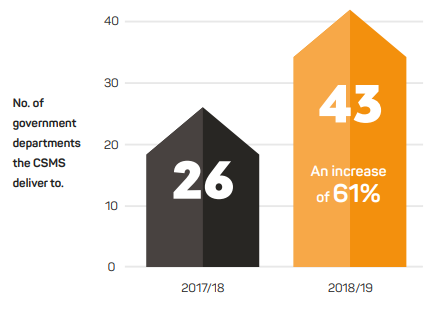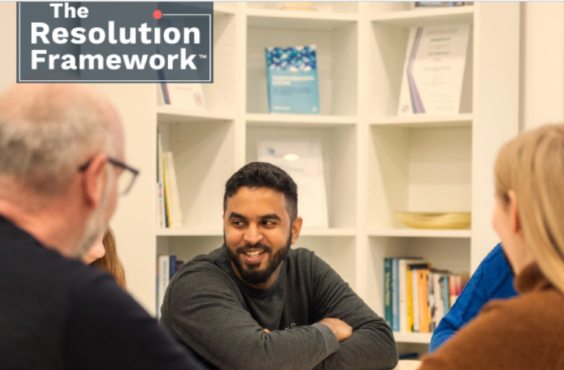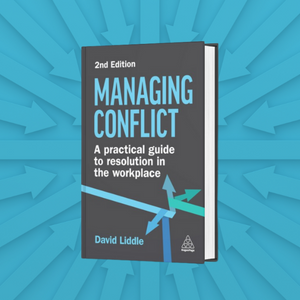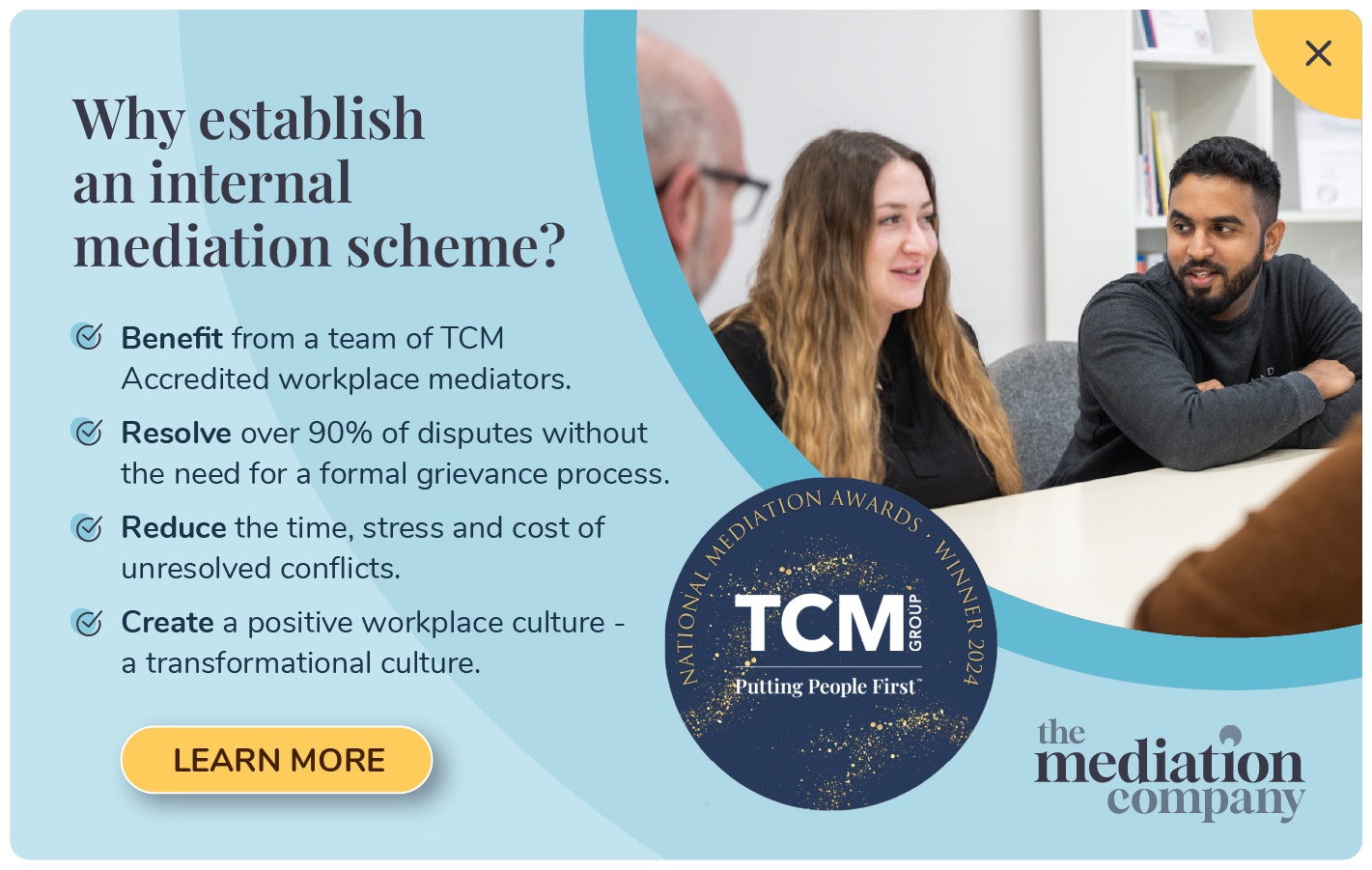
Making mediation mainstream at the UK Civil Service
Download this case study
Mediation in the UK Civil Service
The Civil Service is committed to embedding a culture that handles conflict productively, by focusing on dispute resolution and encouraging a speak-up culture. Mediation, as an informal, collaborative approach to resolution, plays a key part in enabling and embedding this culture.
The Civil Service is made up of over ninety departments and agencies who range in size from fewer than 100 employees up to well over 80,000 (totalling around 450,000 across the whole Civil Service). These touch a citizen’s life from birth to grave with a far-reaching scope including health, justice, education, media, pensions and defence. Embedding mediation in the Civil Service has been both an opportunity and a challenge.
Yet, despite the scale of the challenge, the Civil Service Mediation Service (CSMS) has made great strides in the past two years in raising awareness of mediation, encouraging informal approaches to resolving workplace conflict, and increasing the use of mediation across the organisation. And these efforts are not in vain; 93.5% of cases the mediation service supported in a 12 month period reached a successful conclusion1.
Embedding mediation
Mediation has been used in the Civil Service for some time, with a mediation scheme established within the Department for Work and Pensions (DWP) as early as 2006. This was one of the first departmental mediation schemes set up within the Civil Service and it has acted as something of a trailblazer.
The creation of a central mediation service followed in 2012. This served to embed the approach and drive good practice in all government departments, and has had a significant impact on growing awareness of mediation as an informal approach designed to reduce the disruption conflict causes and help colleagues rebuild working relationships.
“The wider aim of the Civil Service is to treat disputes at work quickly and informally wherever possible and to repair relationships so that people can work constructively together going forward,” says Sally Webb, CS Mediation Service Lead, “When people go straight into a formal procedure it can be very divisive. At the end of it there are often no winners – even if one party feels they have won – and people still have to work alongside each other unhappy.”
The majority of Civil Service departments now have their own in-house mediation scheme, with volunteer employees training as mediators and conducting mediations alongside their day jobs.
In addition to this, the central team in Civil Service HR (CSMS), manages a cross-government pool of around 280 mediators. This is made up of volunteers from the various departmental schemes, who can mediate if there is insufficient capacity, or when sensitive situations call for an experienced, impartial mediator from outside the department concerned. The Civil Service Mediation Service currently deliver to 43 Government departments, an increase of 61% on the 17/18 year when 26 departments were onboard.

The figures show that these efforts both in departments and in the central HR team are paying dividends. In the reporting year from April 2019 to the end of Quarter 3 (Dec 2019) the service completed 114 mediations for departments. This is a 41% increase on the same period of the 2018/19 reporting year. A further 218 Mediations were carried out independently in departments during the reporting year from April 2019 to the end of Quarter 3 (Dec 2019). Thanks to an increase in mediators from 221 at the beginning of the reporting year to 274 (up 24%) to December 2019 and increased/better engagement with departments, the average days taken from referral to the day of the mediation has lowered from 24 days to just 19. Encouragingly, 36% of disputes were withdrawn following mediation.
Professional Practice
As the service grows, and mediation gains a stronger presence in the Civil Service, the importance of driving high standards of mediation practice becomes even more important.
Early and informal resolution to conflict is at the heart of the new model Civil Service Dispute Resolution policy. The central service plays an important role in helping departments embed tangible responses to the principles of the policy.
Each government department has a dedicated co-ordinator, who runs the mediation service and is responsible for setting up local mediations, matching trained mediators to cases or referring them to the central CSMS if appropriate or more cost effective to do so.
All mediators are trained to professional standards by Civil Service approved training providers, and are also able to take part in regular refresher and CPD events.
As part of encouraging good practice, the central team has set up a buddy scheme, where experienced mediators support more recently trained colleagues. There are plans for this to evolve into a more formal system of professional supervision over time.
The service also supports professional practice through the development of a variety of tools to support mediators in their roles, including a Code of Professional Conduct, guidance on doing pre-mediation meet-ups and advice on running mediations solo (as opposed to the dual mediation approach which up until now has been commonly used). As the service grows and more mediators are trained, CSMS will be looking for new and innovative ways to support and develop good mediation practice.
Spreading the word
Mediation has established a strong foothold within the Civil Service, but there is still work to do. Some departments are leading the way, while others have yet to fully embrace the concept.
The Civil Service Mediation Service works with departments across government to raise awareness of mediation. This includes the creation of posters and videos to help spread the word about mediation and encourage its use. In October 2019 the service delivered their most far-reaching cross-government Mediation Awareness Week campaign to date. The aim was to dispel some of the myths that exist around mediation and to raise awareness among individuals as well as managers with blogs and videos published on Gov.uk and YouTube.

A senior level champion (Sarah Albon, Health and Safety Executive CEO) was appointed in Summer 2019. Sarah is helping to spread the mediation message and work with senior leaders to further embed the approach across the Civil Service. The central service also has plans to work closely with HR representatives across the organisation to try and further reinforce the valuable role that mediation can play – not least in reducing the number of cases that end up before tribunal.
Looking ahead
The team is determined not to stand still on its mission to fully embed mediation and ensure the highest possible standards of practice.
There are plans to build on the evaluation system that is currently in place, to make sure data is collected consistently and can be used to paint a picture of the impact mediation is having. The team are also currently working with Diversity & Inclusion colleagues on a number of interesting initiatives to ensure the mediator pool is as diverse as the parties it serves.
“The message about mediation is certainly getting through. Our community of co-ordinators and mediators is far more engaged than it was 18 months ago and there is a lot of energy and enthusiasm for spreading the word about mediation and how well it is working,” said Sally Webb.
And that enthusiasm is being translated into impact – one recent testimonial from a party stated that “I felt mediation cleared the air and that I now have a good working relationship with the other person. I’d highly recommend using mediation to resolve situations or issues.” The Civil Service Mediation Service’s ambition for further growth and greater awareness will allow this impact to be felt even more widely in the Civil Service.






